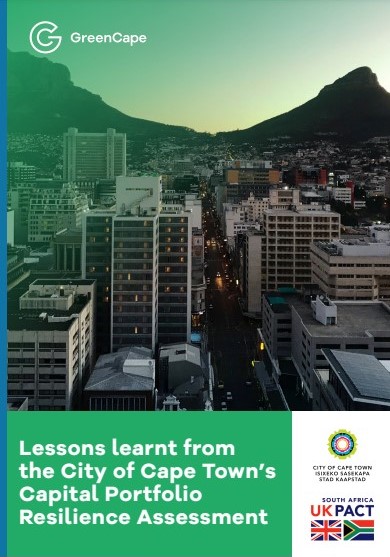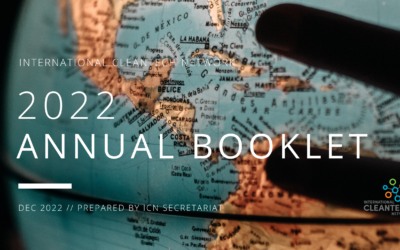
(Article reposted from GreenCape)
Cape Town faces a range of climatic shocks and stresses. Its experience of the “Day Zero” drought event spotlighted the city’s need to be prepared for a range of shock events that are expected to increase in intensity and frequency.
Both the Resilience Strategy (2019) and the Climate Action Plan (2021) call for the integration of resilience considerations into the capital management processes of the City. In this regard, in August 2021, adjustments were made to the City’s SAP Project Portfolio Management (PPM) system to allow for tagging of capital projects for resilience outcomes, where relevant. The intention of this process is to allow for periodic analysis of the capital portfolio for the purpose of understanding in what sectors resilience outcomes are being developed, whether those efforts are matched to the likely risk, and to determine underdevelopment of resilience outcomes in other areas.
In early 2022, UK Pact supported a project implemented by GreenCape, to do the first ever resilience analysis of the City of Cape Town capital portfolio, focusing on an initial 3-year period of the 10-year pipeline, whilst also developing a methodology to run these assessments on an annual basis. Then, maturing it into a fully-fledged approach that helps the City of Cape Town better understand the requirements for a comprehensive portfolio that aims to build resilience to climate change through its infrastructure portfolio. This was done under a low maturity environment as the tagging mechanism had only been in operation for a few months. Nevertheless, it was important to learn lessons fast in order to inform future improvements.
This report reflects on some of the lessons learnt from this initial resilience assessment to highlight opportunities for other cities that are looking to improve their understanding of how their capital infrastructure investments impact their climate resilience. Download the report here.


